IranWire recently fielded a questionnaire that asked its readers a series of key questions about discrimination against religious minorities in the Islamic Republic. The following report is based on the findings of this questionnaire – which recorded anecdotal rather than scientific findings.
The Diversity of Respondents
The respondents were followers of many minority religious faiths. Among the respondents, there were also non-believers, atheists and agnostics.
Baha’is made up the majority of participants with more than 35 percent of respondents. Then came Sunni Muslims, with more than 20 percent, atheists and agnostics with more than 11 percent, Jews with nine percent, Sufis with around six percent, Christians with about 6 percent, deists who are not believers in any specific religion with about four percent and Iranians who are undecided about their religious faith at two percent.
The respondents were almost equally divided between men and women.
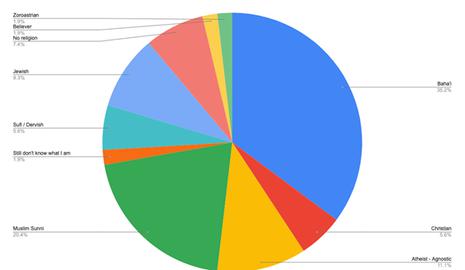
Punishments for Being a Religious Minority
Participants in IranWire’s survey say they have suffered from the following discriminations more than any other kind: denial of job opportunities, denial or difficulty in getting permits to set up their own businesses and also denial of the right to an education. The answers portray a picture of systematic discrimination against religious minorities in the Islamic Republic.
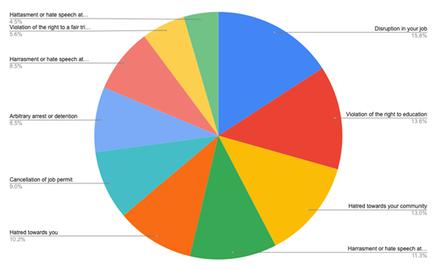
Hate mongering against individuals, and the minority communities to which they belong, is another significant issue. Some of the respondents also said they had witnessed hate mongering against individuals other than themselves.
Besides harassment in the workplace, at schools and at universities, religious minorities are also subjected to arbitrary arrests and the denial of their legal rights after the arrest including the denial to have a lawyer of their own choice.
Agents of Harassment
Respondents to IranWire’s survey said they have been harassed mostly by security agents. The largest share of harassment was attributed to agents of the Intelligence Ministry followed by the Revolutionary Guards’ Intelligence Organization. But the extent of harassment by clerics and religious officials was so high that it exceeded even abuses committed by the Revolutionary Guards.
The situation in schools and universities appears to be different. The responses showed that only a small number of teachers and professors engage in harassing and abusing members of religious minorities. Since many of the responses are confidential, IranWire cannot disclose the details; but the responses showed that even though harassment by teachers is more limited, given the position of trust teachers should hold, these instances were deeply hurtful.
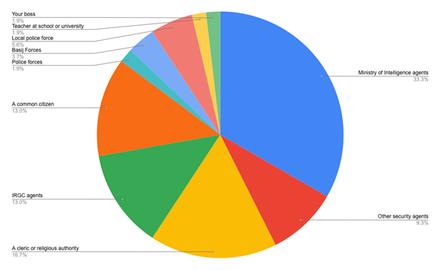
Most of the harassment that took place in schools was done by religious studies teachers and those teachers who taught “life skills” classes that mostly promote Shia Islamic religious ideology.
Sample Stories
Only a few of the participants gave IranWire permission to share their stories. Among these stories we repeatedly see accounts of expulsion from universities, expulsion from jobs and failing to pass job interviews, despite having passed the technical exams.
There are also accounts of individuals coming to harm, such as through torture and rape, after their arrests; but the narrators of these stories did not give IranWire permission to publish any details.
IranWire believes that these stories are only the tip of the iceberg of the harassment of religious minorities in the Islamic Republic of Iran.
Systematic and Continuing Discrimination
Notably, only 20 percent of the participants in the survey say the discrimination against them had been temporary and had stopped; but 80 percent of respondents said that discrimination against them continue unabated.
Related Coverage:
Discrimination Against Religious Minorities in Iran: Reports and Resources
Fact Check: Do Sunnis Have 'Enough Freedom' in Iran?
IranWire’s Webinar on the Persecution of Christians
Iran's Islamic Penal Code and the Violation of the Rights of Religious Minorities
Help Us Keep Covering Religious Minorities in Iran
US Government Publishes Overview of Iran's Crimes Against Religious Minorities
Unique Gathering of Religions in an IranWire Webinar on Gender in Iran
How a Textbook in Iran Portrays Minorities and Identity
Religious Minorities in Iranian Schools: From Childhood Wounds to Adult Suffering
Four Decades of Discrimination Against Sunnis in Iran
Blood money, Inheritance and Property: Religious Discrimination in Iranian Law
"Iran Without Hate" Campaign for Baha'is Attracts Widespread Support
Increase in Anti-Baha'i Propaganda in Iran Prompts Call for Accountability
The Islamic Republic's Intolerance to Christian Converts, Explained
visit the accountability section
In this section of Iran Wire, you can contact the officials and launch your campaign for various problems




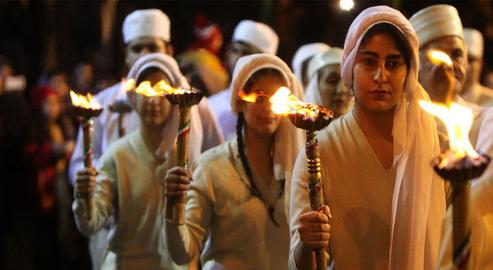
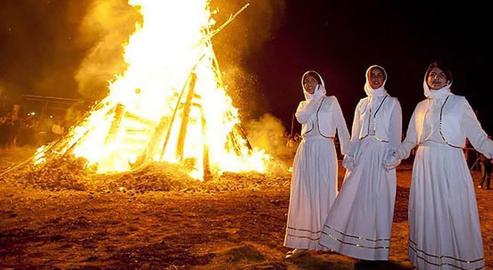










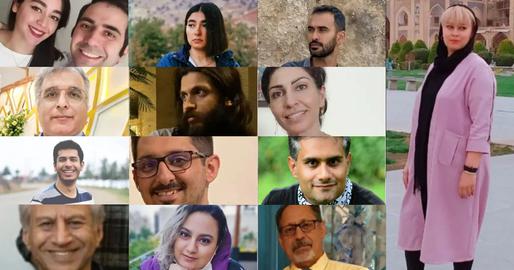

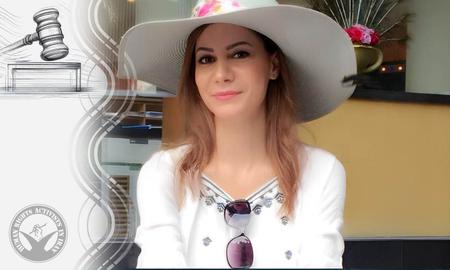




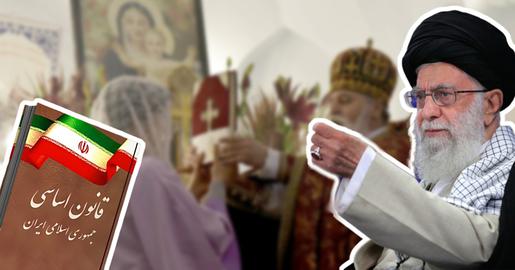

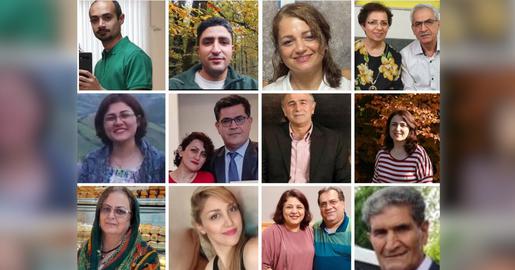
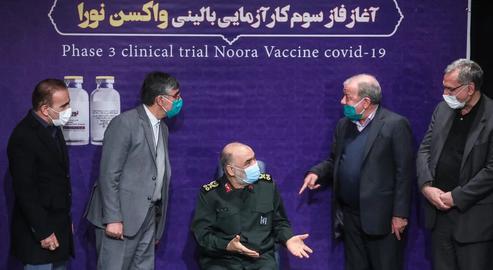
comments